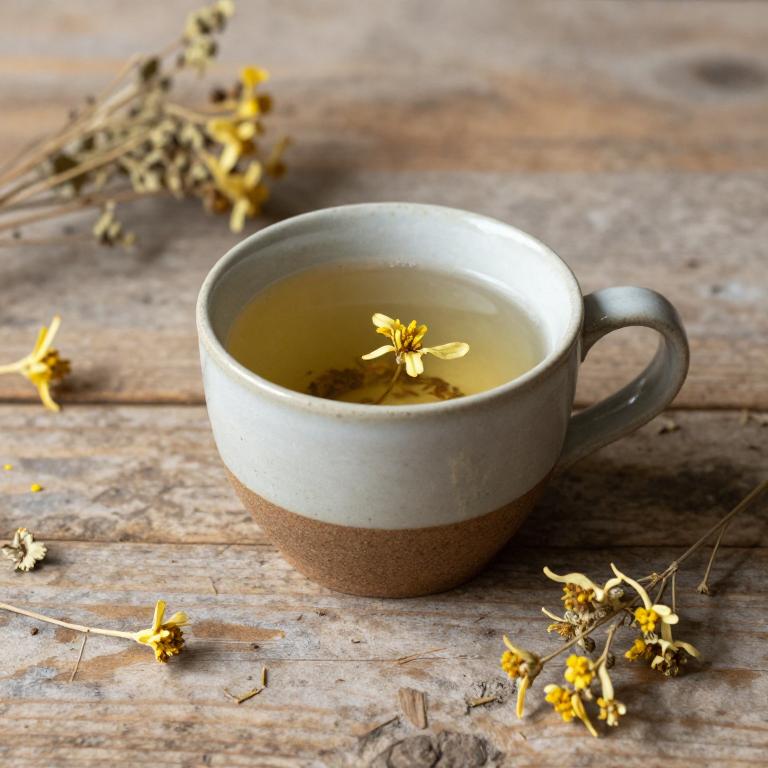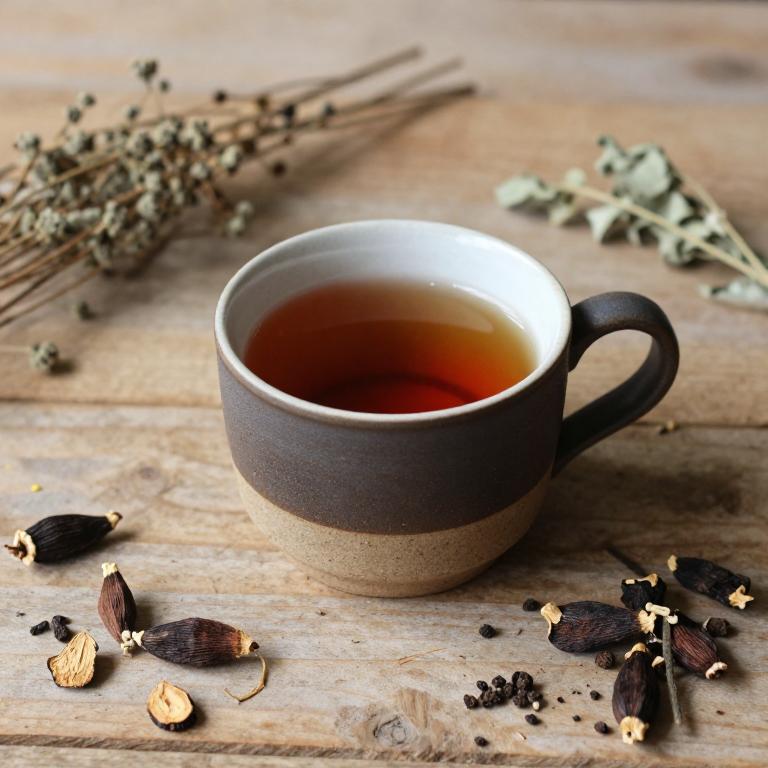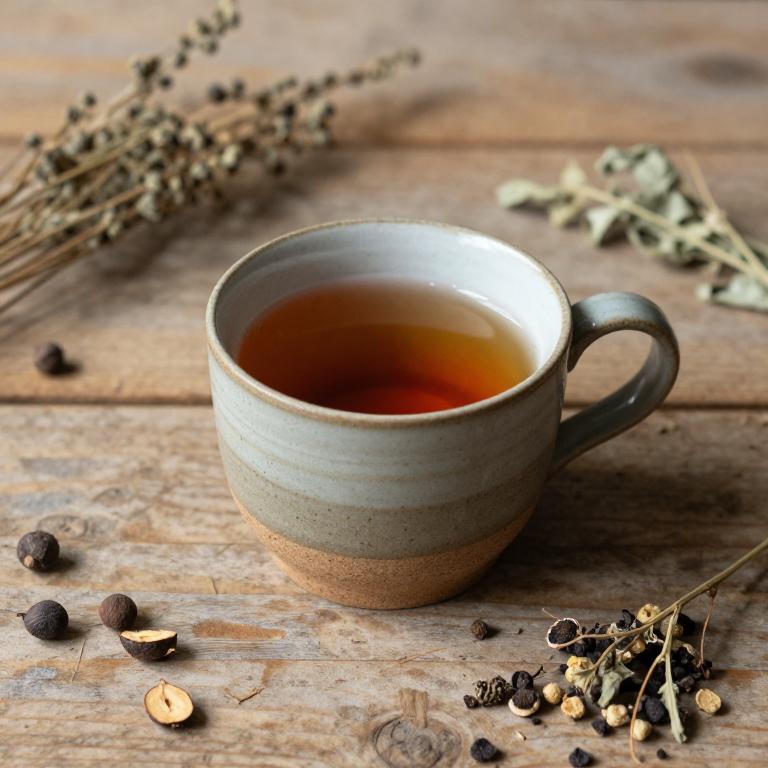10 Best Herbal Teas For Snoring

Herbal teas have gained popularity as a natural remedy for reducing snoring, offering a gentler alternative to over-the-counter medications.
Certain herbs, such as chamomile, valerian root, and licorice, are believed to relax the muscles in the throat and reduce inflammation, which can contribute to snoring. Drinking a cup of herbal tea before bedtime may help ease breathing and promote deeper, more restful sleep. While scientific evidence on their effectiveness is limited, many users report improved sleep quality and reduced snoring after incorporating these teas into their routine.
As with any health remedy, it is advisable to consult a healthcare professional before relying on herbal teas for chronic snoring issues.
Table of Contents
- 1. Chamomile (Matricaria chamomilla)
- 2. Valerian (Valeriana officinalis)
- 3. Rosemary (Rosmarinus officinalis)
- 4. Black pepper (Piper nigrum)
- 5. Ginger (Zingiber officinale)
- 6. Licorice (Glycyrrhiza glabra)
- 7. Ceylon cinnamon (Cinnamomum zeylanicum)
- 8. Fennel (Foeniculum vulgare)
- 9. Stinging nettle (Urtica dioica)
- 10. Salvia (Salvia officinalis)
1. Chamomile (Matricaria chamomilla)

Matricaria chamomilla, commonly known as chamomile, is a popular herbal tea often used for its calming and soothing properties.
While it is traditionally consumed to aid sleep and reduce anxiety, some studies suggest that it may also help alleviate snoring by relaxing the muscles in the throat and reducing inflammation. Chamomile contains compounds like apigenin, which have mild sedative effects and can promote deeper, more restful sleep. However, it is important to note that while chamomile tea may contribute to better sleep quality, it is not a guaranteed cure for snoring, and persistent snoring should be evaluated by a healthcare professional.
Overall, chamomile herbal tea can be a gentle complementary remedy for those seeking natural support for sleep-related issues.
2. Valerian (Valeriana officinalis)

Valeriana officinalis, commonly known as valerian, is a traditional herbal remedy that has been used for centuries to promote relaxation and improve sleep quality.
When brewed into a tea, valerian root is believed to help reduce snoring by calming the nervous system and relaxing the muscles in the throat. Its active compounds, such as valerenic acid and volatile oils, may help alleviate the muscle tension that contributes to obstructive sleep apnea and snoring. However, while some studies suggest potential benefits, more research is needed to confirm its effectiveness for snoring specifically.
It is often recommended to use valerian tea as part of a holistic approach to better sleep, alongside lifestyle changes and proper sleep hygiene.
3. Rosemary (Rosmarinus officinalis)

Rosmarinus officinalis, commonly known as rosemary, has been traditionally used in herbal teas to support respiratory health and potentially reduce snoring.
The essential oils in rosemary, such as camphor and pinene, are believed to help open up airways and reduce inflammation in the throat, which can contribute to snoring. Drinking rosemary tea before bedtime may promote clearer breathing and improve sleep quality for individuals who experience habitual snoring. While scientific evidence on its effectiveness for snoring is limited, many users report a noticeable improvement in their symptoms when incorporating rosemary into their nightly routine.
As with any herbal remedy, it is advisable to consult a healthcare professional before using rosemary tea, especially for those with allergies or medical conditions.
4. Black pepper (Piper nigrum)

Piper nigrum, commonly known as black pepper, has been traditionally used in herbal teas to address various health concerns, including snoring.
The active compound in black pepper, piperine, is believed to enhance the absorption of other nutrients and may help reduce inflammation in the respiratory tract. Some studies suggest that the warming properties of black pepper can help clear nasal passages and improve airflow, which may reduce the likelihood of snoring. While there is limited scientific evidence specifically linking black pepper tea to snoring reduction, many users report improved sleep quality when consuming it regularly.
As with any herbal remedy, it is advisable to consult a healthcare professional before incorporating black pepper tea into a snoring treatment regimen.
5. Ginger (Zingiber officinale)

Zingiber officinale, commonly known as ginger, has been traditionally used in herbal teas for its potential to alleviate snoring.
The active compounds in ginger, such as gingerol and shogaol, may help reduce inflammation and relax the muscles in the throat, which can contribute to snoring. Drinking ginger tea before bedtime may help ease respiratory passages and promote better airflow, potentially reducing the frequency of snoring. Some studies suggest that ginger's warming properties can aid in clearing mucus and improving overall respiratory function.
While more research is needed, many individuals report a noticeable improvement in their sleep quality and reduced snoring after incorporating ginger tea into their nightly routine.
6. Licorice (Glycyrrhiza glabra)

Glycyrrhiza glabra, commonly known as licorice root, has been traditionally used in herbal medicine for its soothing and anti-inflammatory properties.
When brewed into a tea, licorice root may help reduce inflammation in the airways, potentially easing respiratory congestion that can contribute to snoring. Some studies suggest that the expectorant properties of licorice can help clear mucus from the throat, making breathing smoother and reducing nighttime throat irritation. However, while licorice tea is generally considered safe in moderate amounts, excessive consumption may lead to side effects such as high blood pressure due to its glycyrrhizin content.
As with any herbal remedy, it is advisable to consult a healthcare professional before using licorice root tea for snoring, especially for individuals with existing health conditions.
7. Ceylon cinnamon (Cinnamomum zeylanicum)

Cinnamomum zeylanicum, commonly known as cinnamon, has been traditionally used in herbal teas to help reduce snoring.
The essential oils in cinnamon possess mild expectorant and anti-inflammatory properties that may help clear respiratory passages and reduce throat irritation, which are common contributors to snoring. Some studies suggest that the warming effect of cinnamon may relax the muscles in the throat, potentially easing breathing during sleep. While more research is needed, many people report improved sleep quality and reduced snoring after incorporating cinnamon tea into their routine.
As a natural remedy, cinnamon tea can be a soothing and accessible option for those seeking alternative solutions to nighttime breathing issues.
8. Fennel (Foeniculum vulgare)

Foeniculum vulgare, commonly known as fennel, has been traditionally used in herbal teas to help reduce snoring.
The essential oils in fennel, particularly anethol, are believed to have mild sedative and antispasmodic properties that may relax the muscles in the throat and airways. Drinking fennel tea before bedtime can promote better breathing during sleep, potentially minimizing the occurrence of snoring. Some studies suggest that fennel may help alleviate nasal congestion and improve overall respiratory function.
While it is generally considered safe, individuals should consult with a healthcare provider before using fennel tea, especially if they have allergies or are taking other medications.
9. Stinging nettle (Urtica dioica)

Urtica dioica, commonly known as stinging nettle, has been explored for its potential benefits in reducing snoring through its anti-inflammatory and mucolytic properties.
Herbal teas made from stinging nettle may help soothe the respiratory tract by reducing mucus buildup and inflammation in the airways, which are common contributors to snoring. Some studies suggest that the nutrients and bioactive compounds in nettle tea can support overall respiratory health, potentially improving airflow and reducing nighttime breathing disruptions. While more research is needed to confirm its effectiveness for snoring specifically, many users report a noticeable improvement in their sleep quality after incorporating nettle tea into their routine.
As with any herbal remedy, it is advisable to consult a healthcare professional before use, especially for individuals with existing medical conditions or those taking medications.
10. Salvia (Salvia officinalis)

Salvia officinalis, commonly known as sage, has been traditionally used in herbal teas to address various health concerns, including snoring.
The essential oils in sage leaves, such as thujone and camphor, are believed to have mild sedative and decongestant properties that may help reduce throat irritation and relax airway muscles. Some studies suggest that inhaling sage steam or consuming sage tea could help clear nasal passages and improve breathing during sleep. While there is limited clinical evidence specifically supporting its effectiveness for snoring, many individuals report anecdotal benefits from using sage tea as part of their nighttime routine.
As with any herbal remedy, it is advisable to consult a healthcare professional before incorporating sage into a snoring treatment plan.